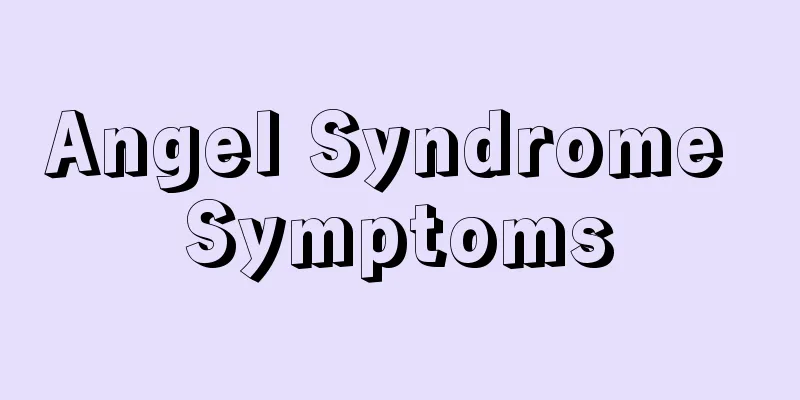Angel Syndrome Symptoms

|
Angelman syndrome is a neurological disease, which is characterized by the patient's slow reaction and development much slower than normal people. Patients with Angelman syndrome are generally children, which greatly hinders their growth and development. Some of them may even cause children to develop differently from normal people, which is often called malformation. So, what are the symptoms of Angelman syndrome? Angel syndrome: also known as happy puppet syndrome, its English name is “Angelman syndrome”. First reported by British pediatrician Angelman, it is a group of neurodevelopmental diseases caused by defective expression of the maternal UBE3A gene affecting 15q11-13. Literature reports that its incidence rate is approximately 1/15,000, making it a rare disease. Typical clinical manifestations of Angelman syndrome include: Typical findings in almost all Angel Children: 1) Severe developmental delay, usually with more pronounced intellectual disability 2) Movement and balance disorders, usually manifested as gait ataxia, stiff steps, or tremors in the limbs. Sometimes it may also manifest as twisting limbs, clumsiness 3) Unique behaviors, including laughing, laughing at inappropriate times, always appearing happy, easily excited and agitated (such as clapping), large movements, hyperactivity, and short attention span 4) Language development disorder, with little or no use of words, or only some repetitive or receptive language Symptoms present in approximately 80% of Angel Children 1) The head circumference is generally normal at birth, but it increases slowly and often manifests as a small head (less than 2 standard deviations of normal) after 2 years of age. 2) Epileptic seizures, which usually begin before age 3 and become less severe with age, but can persist into adulthood. 3) Abnormal EEG, which often shows special brain wave patterns, but the degree of EEG abnormality is not completely parallel to epileptic seizures. About 20%-80% of Angel children may have symptoms such as: 1) The occipital bone (back of the head) is flat or concave; 2) They like to stick out their tongues; some have sucking disorders and often drool; 3) Difficulty feeding during infancy; some have hypotonia during infancy. 4) Protruding jaw, large mouth, widely spaced teeth, less skin pigmentation, lighter hair and pupil color (compared to other people in his family) 5) Excessive chewing, making funny faces, and other seemingly funny behaviors 6) Strabismus 7) When walking, likes to lift arms; has foot valgus, wide gait 8) is sensitive to heat 9) Abnormal sleep cycle, which may be manifested as less need for sleep 10) Likes water and things with many wrinkles, such as paper and plastic bags 11) Eating accompanied by abnormal behavior 12) Obesity in old age 13) Scoliosis 14) Constipation |
<<: What should I do if my hands are soaked in pepper water?
>>: What are the symptoms of myocardial infarction_Symptoms of myocardial infarction
Recommend
What are the main obvious manifestations of colon cancer symptoms
If we want to detect the presence of colon cancer...
Are centipedes poisonous?
We usually see many kinds of multi-legged insects...
Traditional Chinese medicine formula for treating bone cancer
What are the Chinese medicine formulas for treati...
How to reduce swelling and blood stasis after a fall
In our daily lives, we are bound to fall accident...
Is the pulp the tooth nerve?
In life, people often experience dental nerve pai...
What are the benefits of soaking your feet in ginger and pepper_What are the benefits of soaking your feet in boiled water with ginger
Ginger and Sichuan pepper are two very common ing...
How much does interventional treatment for brain cancer cost
Many patients will ask about the cost of surgery ...
What is the difference between tonsils and lymph nodes?
As we all know, tonsils and lymph nodes are locat...
What causes cough with thick phlegm?
Cough is a common disease for babies, but most ba...
Does malt water reduce milk production?
The health of the baby is a problem that mothers ...
How to judge whether it is bone or tooth
A protruding mouth has a huge impact on a person&...
Can the spathiphyllum be grown indoors?
As everyone knows, gardenia has a very sweet frag...
Stomach cramps and diarrhea
If you have stomach cramps and diarrhea, it is ve...
Will I have kidney pain after taking an anti-inflammatory injection?
In life, there will always be some inflammation i...
Will thyroid cancer cause pain on the left side of the neck?
Whether a thyroid cancer patient will experience ...









